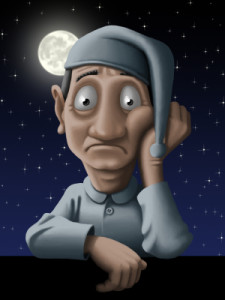Sleep Restriction Therapy is an effective component of Cognitive Behaviour Therapy that limits a persons total time in bed that has proved highly effective for many sufferers of poor sleep.
What Is Cognitive Behavior Therapy?
Cognitive Behavior Therapy is a short-term and goal directed form of psychotherapy often used to cure insomnia, depression, anxiety, and other forms of mental health problems. The focus of CBT is to examine the relationship between emotions, thoughts, and behavior.
Likewise, this form of therapy concentrates on the effects in regard with the thoughts and beliefs a person has. Through changing the pattern of distorted thinking that a lot of people with mental issues commonly experience, it’s possible to resolve both emotional and mental issues.
CBT works in several ways. One of the most obvious ones is the increase of one’s awareness, thought patterns, and belief that has something to do with the emotional and behavioral problems of a person. Not just that, it also teaches the person how to cope with life’s problems. For example, someone suffering from depression is asked to record and log their negative thoughts. This could be used to easily cope up with life’s future problems.
Similar to other forms of therapy, CBT could also be effective through the relationship between therapist and clients. Wherein, having an active group of supporter and collaborator can be extremely helpful.
How Cognitive Behavior Therapy Could Help with Insomnia
CBT for insomnia is structured in a way where it helps a person identify and replace the behaviors and thoughts that negatively affects or worsens insomnia that restricts a person from enjoying a deep slumber.
In order to make notable changes, it’s essential for the person to familiarize himself with the sleep cycles and figure out how certain beliefs and behaviors, as well as the outside factors could affect a person’s sleep cycle. Similarly, in order to decide what the best treatment for insomnia can be, a sleep therapist would require a person to keep a sleep diary for 1-2 weeks and record everything in it.
Cognitive behavioral therapy for insomnia aspires to help a person improve his sleeping schedule as it teaches a person to recognize and change his beliefs that are probably affecting his quality of sleep. For instance, this could include how a person controls- or take away- the negative thoughts and anxieties that keep a person awake at night.
What Is Sleep Restriction Therapy?
Sleep restriction therapy has a goal of lessening the time spent in bed to the real time used for sleeping, as well as to improve sleep efficiency by extending the sleeping time. Basically, limiting the time spend in bed would create a mild effect of sleep deprivation, and this would encourage an earlier sleeping schedule, together with a deeper and more effective slumber. The usual protocol included in sleep restriction therapy are the following:
– The ATST (individual’s average total sleep time) should be determined per night. Something like this could be calculated through the use of a diary that has been filled out for one week.
– Limit the person’s time in bed each night, and follow the ATST.
– Establishing a specific bedtime routine based on the desirable time to wake up in the morning, and as much as possible, don’t let any sleep time to take place outside the sleep window.
How Sleep Restriction Therapy Could Help with Insomnia
Despite the fact that sleep restriction therapy may sound counterintuitive in nature, the truth is, this could actually help in beating insomnia. The thought underlying sleep restriction therapy is that the sleeper should set a bedtime as well as a specific time of waking up, and stick with these closely. Wherein, the entire duration in bed is usually shorter that what the sleeper had been previously doing. Likewise, the time allotted for bed would be based on the duration the person has been dormant at night. For instance, if the person’s routine is to spend at least 8 hours in bed each night, but rests for 7 hours over that specific period, then the starting time that should be allotted under SRT would be 7 hours. The person isn’t also allowed to go to bed earlier or wake up late, and as much as possible, he should restrict himself from taking a nap within the day.
It is usually a revelation to insomniacs to find that the root of their problem is they were spending too much time in bed trying in vain to sleep. This trained condensing of time spent in bed retrains your body to sleep when it needs to. Throwing out sleeping pills seems to be possible after this therapy.
Dr. Spielman, who pioneered this method, had all his sleep deprived test subjects sleeping 7 solid hours within a month. They reported the quality of their sleep to be much improved also. Using light for approximately half hour upon awakening is a key part of the therapy and helps to regulate the sleep/wake cycle.
It is crucial your first port of call is your GP should you be suffering unusual or prolonged insomnia.
To find out more about Sleep Restriction visit: http://www.ndcn.ox.ac.uk/publications/457970

